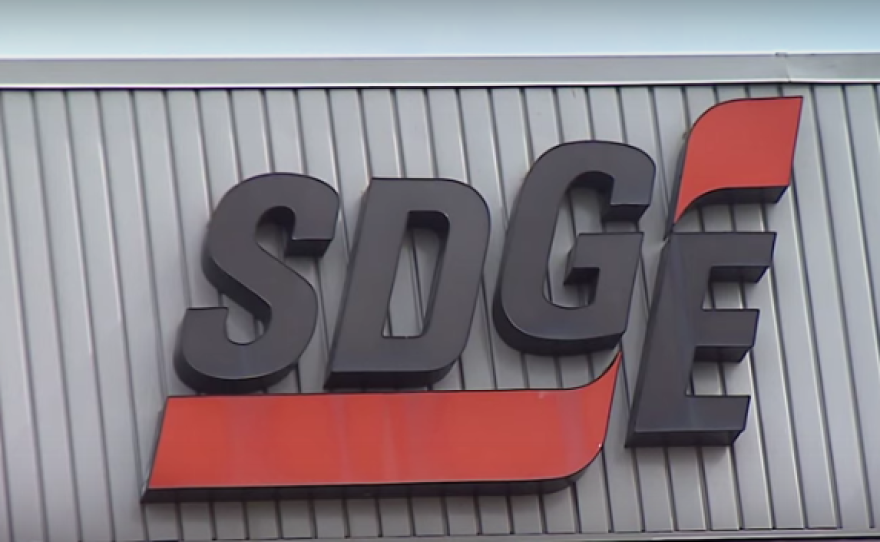Employees affiliated with SDG&E and its parent company Sempra Energy may have been in violation of a state law by speaking at a county meeting last week.
To understand why, you have to get into the details of the law and the relationship between the companies.
"Sempra Energy is parent company of SDG&E and also Sempra Services," said Doug Kline, a spokesman for Sempra Energy.
What is community choice aggregation?
Right now, San Diego Gas & Electric provides power through its system of lines and wires to every city in San Diego County and southern Orange County. SDG&E buys the electricity from a variety of sources, including natural gas plants, hydroelectric dams and wind turbine farms.
If a city goes with community choice aggregation, power would still go through SDG&E’s grid, but the city would buy the energy, not the utility. That allows cities to have more control over how much of their energy comes from renewable sources and the cost for that electricity.
He said Sempra Services was set up to "be part of the dialogue about climate plans and community choice aggregation." Community choice aggregation is an alternative energy program that would allow cities and counties to bypass SDG&E and decide on their own where to buy their energy from, which could allow them to choose more renewable energy sources.
State law prevents utilities from marketing or lobbying on community choice aggregation unless they set up an independent organization that is not funded by ratepayers. That is what Sempra Services is.
The California Public Utilities Commission has to approve how the independent organizations are set up and run. In August, the commission gave initial approval to the organization but said it still needed more information from SDG&E.
Then in December, the commission said marketing and lobbying on community choice was suspended because SDG&E had not given enough information to show the organization is independent enough from the utility.
For example, SDG&E has to "conduct training for all its employees and agents, including contractors and consultants" to ensure they follow state laws about marketing and lobbying on community choice, the commission wrote in a letter. While the utility trained its employees, it had not demonstrated it will train contractors and consultants.
That suspension has advocates of community choice saying Sempra Energy and SDG&E are in violation of state law.
Frank Urtasun, vice president for Sempra Services, spoke at a San Diego County Board of Supervisors meeting last week, as did Lani Lutar, a lobbyist for Sempra Services. Urtasun also wrote a letter to the supervisors before the meeting.
RELATED: San Diego County Will Not Pursue Community Choice In Unincorporated Areas
The supervisors were considering studying whether community choice would be feasible in unincorporated parts of the county, and decided not to do the study.
Urtasun said he does not think speaking at the meeting constitutes as lobbying. He said he spoke with lawyers for the county before the meeting, and "they were fine with it."
He also said he had his attorney review the California Public Utilities Commission's December letter suspending marketing and lobbying on community choice, "and the feeling was there was nothing in that decision" that overturned the initial approval given in August.
"We're operating as we believe we are legal to do so and will continue to do so until told otherwise," he said.
He then referred further questions to SDG&E. A spokesman for SDG&E referred questions to Sempra Energy. The Sempra Energy spokesman referred questions to Urtasun.
A spokeswoman for the California Public Utilities Commission did not return requests for comment on the matter but told The San Diego Union-Tribune that the commission has not given Sempra Services the final OK to market and lobby on community choice.
"We would need to look into the facts of the situation, but if Sempra is participating in activities that should only be covered by the marketing agent, they would be in violation of CPUC rules," she told the newspaper.







